B. Simple Triple Meter as 3/4 and Simple Quadruple Meter as 4/4
Basic Exercises in 3/4 and 4/4
In this chapter, the quarter-note-beat measure expands from two beats (2/4) to three (3/4) and four (4/4) beats. The rhythmic complexity of Chapter 1A has been maintained in this chapter, so the challenge is now one of navigating (and perhaps conducting) longer measures. There are many ways to conduct three- and four-patterns, most of which are variations on the same shape; simply use the one that is clearest and works best for you.
Exercises in 3/4
Exercise 1B-1: Amy Beach, Children’s Album, Op. 36, Number 1, Minuet

Exercise 1B-2: Amy Beach, Children’s Album, Op. 36, Number 1, Minuet

Exercise 1B-3: Daniel Gottlob Türk, 120 Pieces for Aspiring Keyboardists, Number 9, Ich bin so matt und krank

Exercise 1B-4: Camille Saint-Saëns, Cavatine, Op. 144
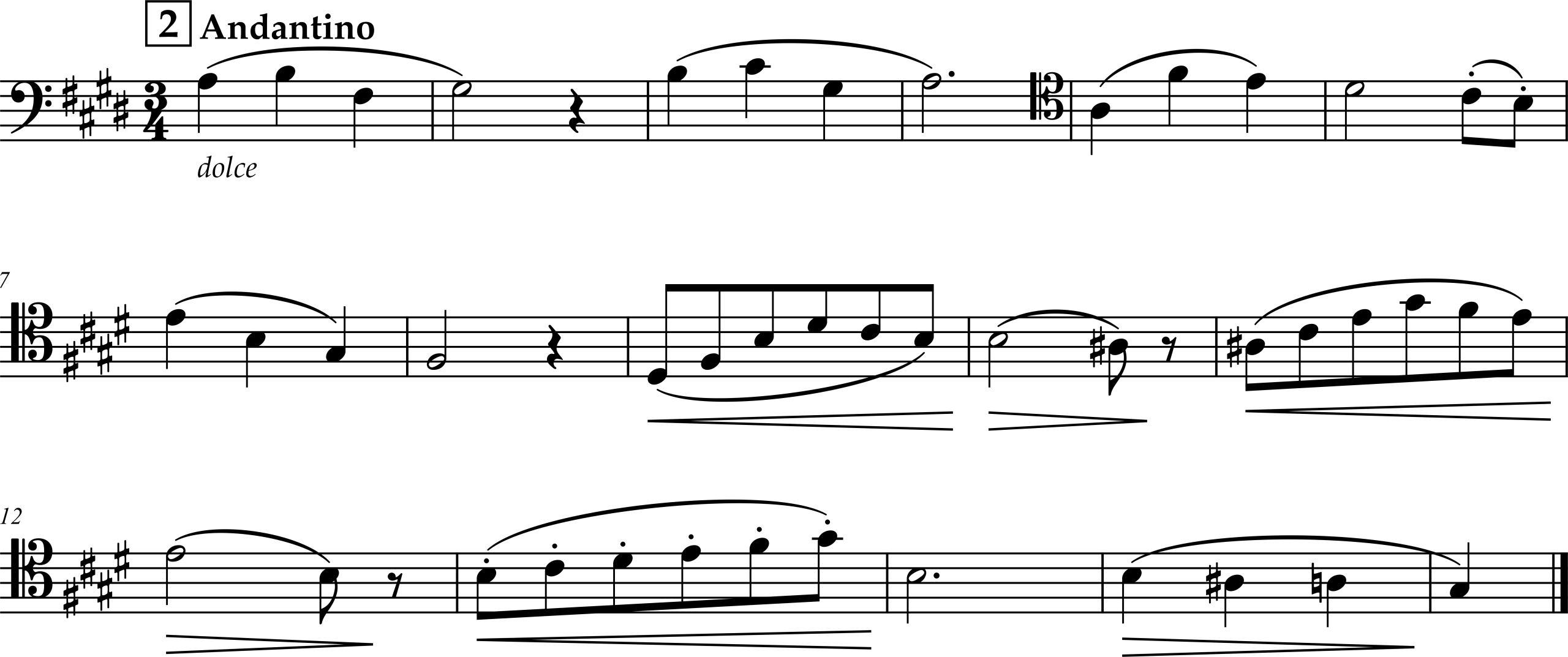
Exercise 1B-5: Christian Petzold, Minuet in G major (formerly BWV Anh. 114)

Exercise 1B-6: Christian Petzold, Minuet in G major (formerly BWV Anh. 114)

Exercise 1B-7: Rebecca Clarke, Piano Trio, Movement 1
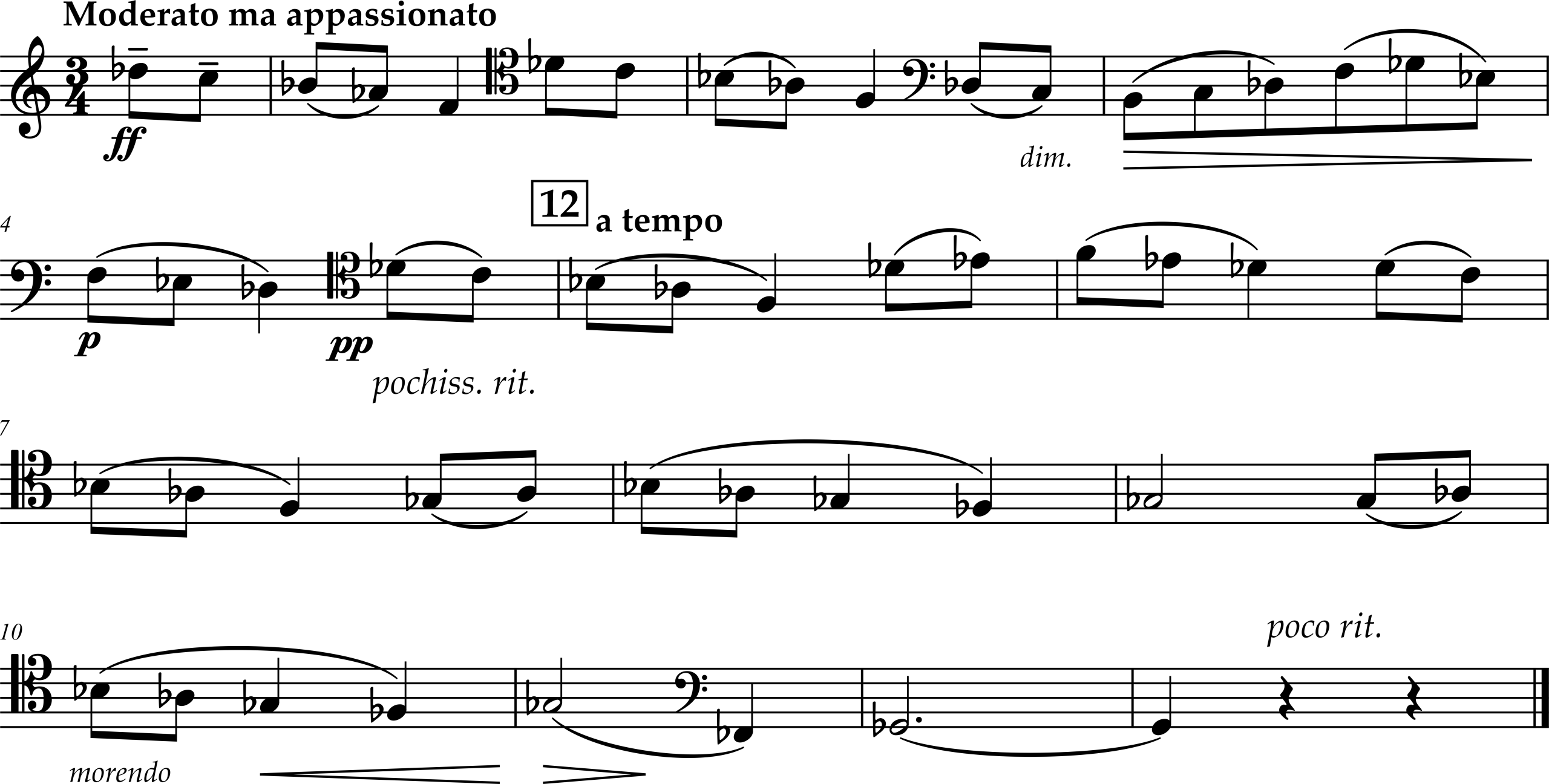
In the following exercises, consider experimenting with tempo. If your perform faster than the suggested tempo, you will likely reach a point where the entire measure feels like one large beat (notated as a dotted half note) divided into three parts (each a quarter note). We will explore this further in Chapter 3D.
In Exercise 1B-8, the three sixteenth-note triplets in the third system take up the same rhythmic space as one eighth note. For now, you can simply imagine an eighth note in their place and perform them as such.
Exercise 1B-8: Alexandre Tansman, Mazurka for Guitar
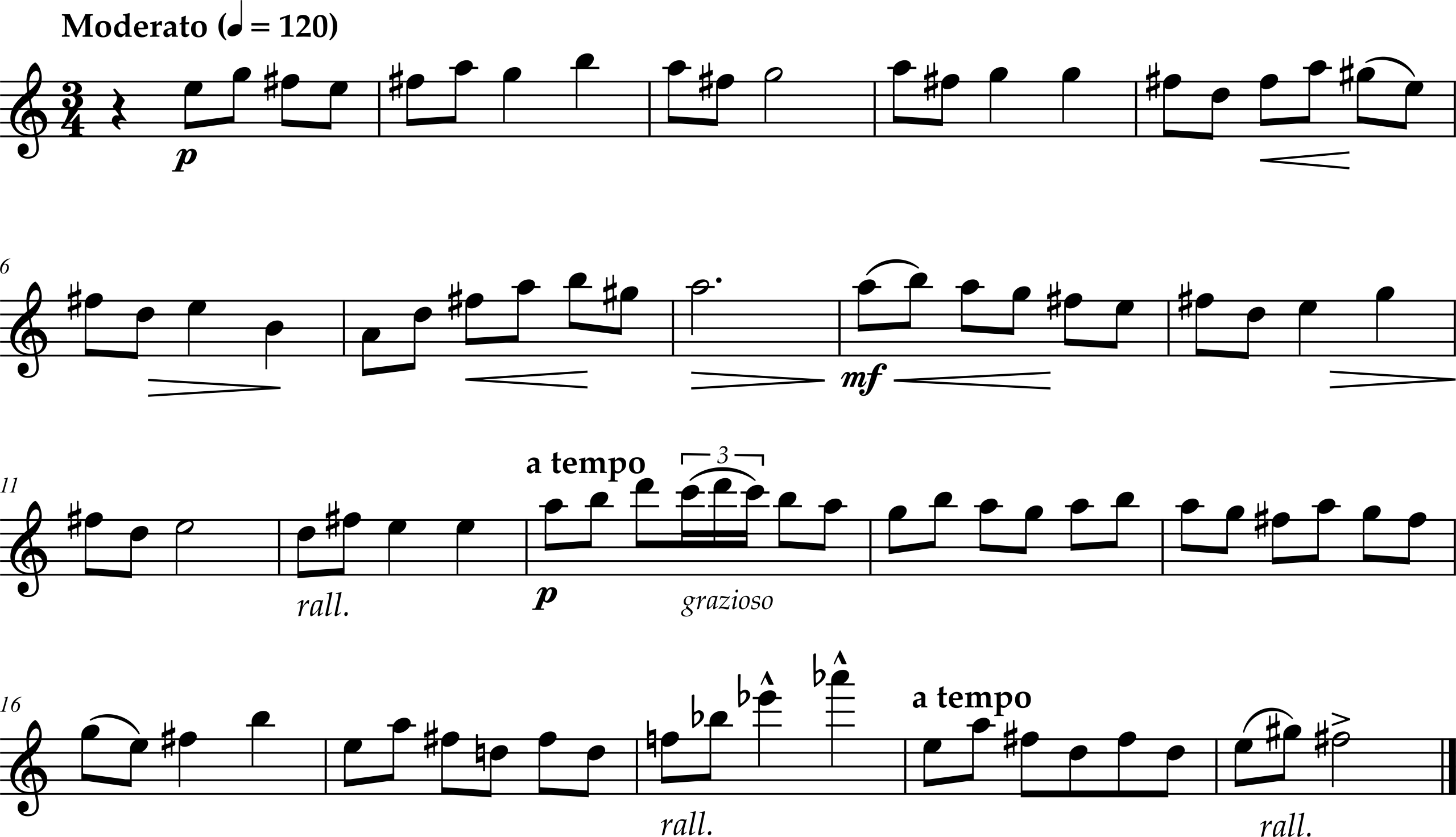
Exercise 1B-9: Frédéric Chopin, Waltz in A minor, B. 150

Exercise 1B-10: Pyotr Ilyich Tchaikovsky, Album for the Young, Op. 39, Number 23, The Organ-Grinder Sings

Exercise 1B-11: Carl Nielsen, Wind Quintet, Op. 43, Movement 3

Exercises in 4/4
Exercise 1B-12: Edvard Grieg, Peer Gynt Suite Number 1, Op. 46, Death of Åse
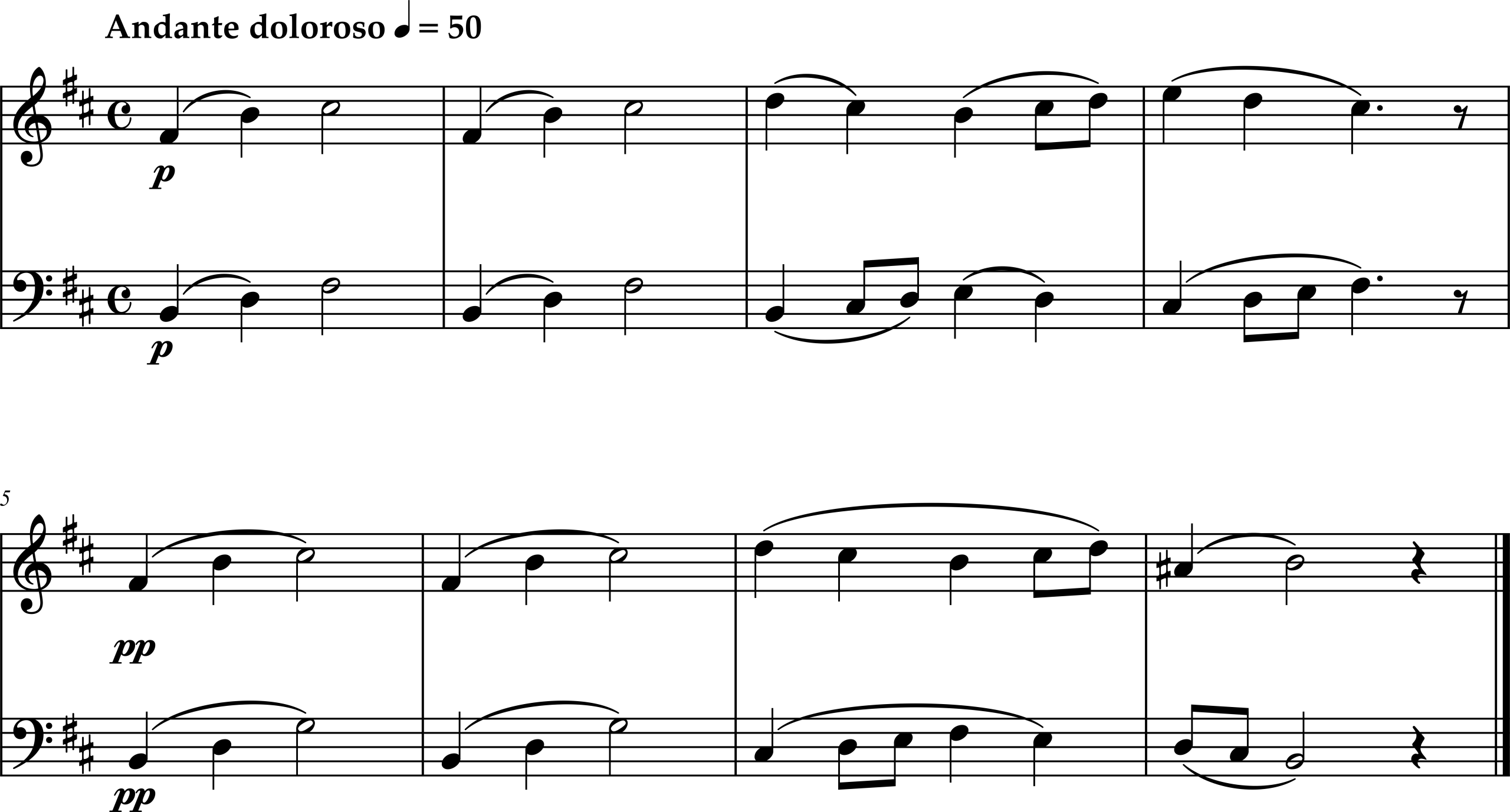
Exercise 1B-13: Rebecca Clarke, Piano Trio, Movement 2

Exercise 1B-14: Johannes Brahms, Clarinet Quintet, Op. 115, Movement 3

Exercise 1B-15: Felix Draeseke, Little Suite for English Horn and Piano, Op. 87, Movement 3

Exercise 1B-16 contains a dotted-eighth-sixteenth pair, which looks ahead to what we will cover in Chapter 1E. Feel free to perform the last system as follows:

Exercise 1B-16: Franz Danzi, Horn Sonata in E-flat major, Op. 28, Movement 1
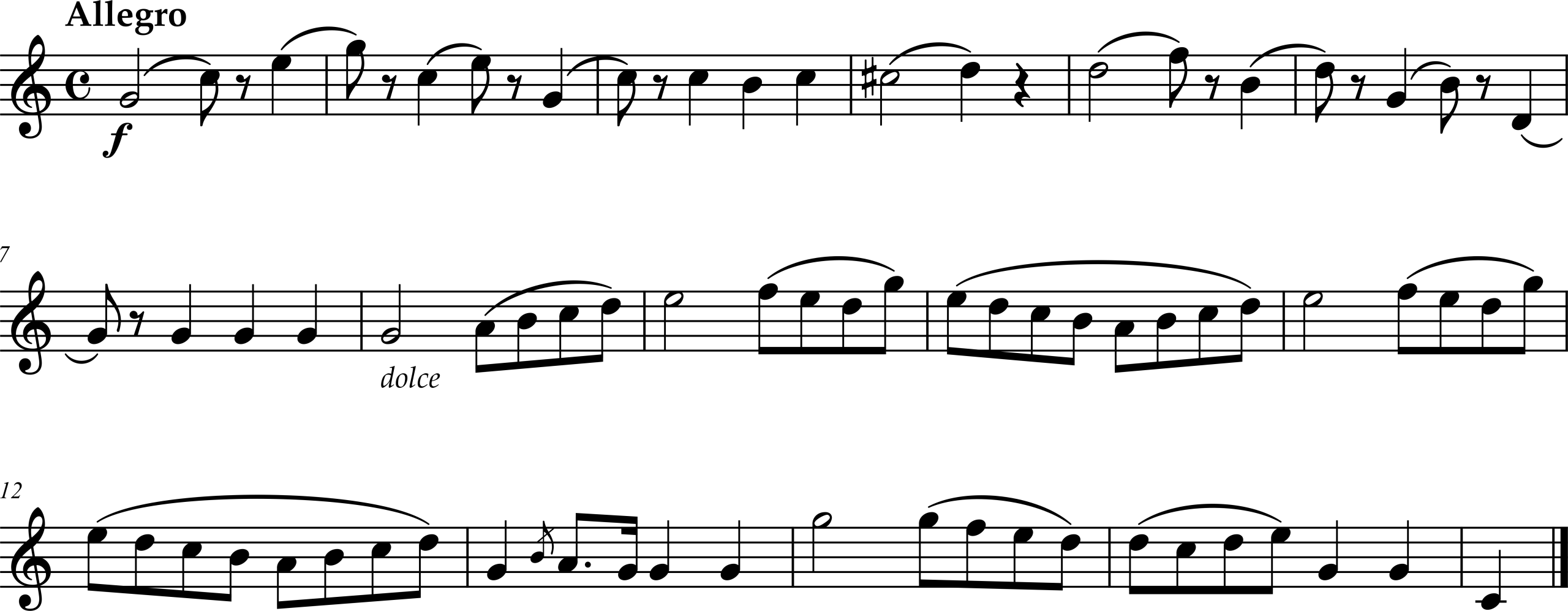
Exercise 1B-17: Joseph Haydn, Keyboard Sonata in C major, Hob. XVI:50, Movement 1

Exercise 1B-18: Gustav Mahler, Symphony Number 4 in G major Movement 3

Exercise 1B-19: Gustav Mahler, Symphony Number 4 in G major, Movement 1

Exercise 1B-20: Pyotr Ilyich Tchaikovsky, Romeo and Juliet, TH 42

Exercise 1B-21: Pyotr Ilyich Tchaikovsky, Romeo and Juliet, TH 42


